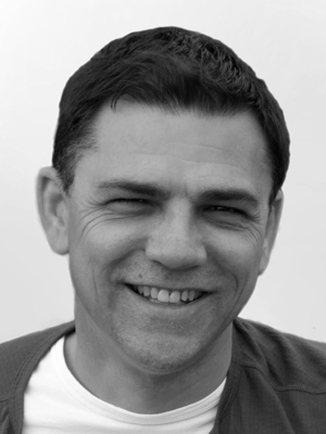|
One of the truism's I tend to agree with, is that you can tell how difficult something is to solve by the number of books written about it. The other truism, I also tend to agree with, is that there is no such thing as a new idea.
This certainly seems to be the case with procrastination self-help books of which there are quite a few, and which typically promise to 'overcome', 'defeat', or even 'crush' this habit, so we can lead more productive, less lazy lives, and get more done. What most of this self-help seems to boil down to is the making of lists. We are often presented with a system which requires thinking, conscious planning, and also a good deal of effort to maintain. The experience generally goes something like this. After about two weeks of what feels like a parent trying to cajole a reluctant child to do its homework, we eventually lose focus, and forget, ignore or put off the strategies that were supposed to become ingrained habits. Thus, when we are not paying attention, we procrastinate away the very strategies that were supposed to overcome our procrastination! Another way of going about things?
Rather than seeing change as a battle, Gestalt counselling has something very different to say about how change takes place. In fact so different, that at first sight it seems to make no sense at all.
This idea was captured by Arnold Beisser, a Gestalt practitioner, in a short article he wrote in 1970 entitled The Paradoxical Theory of Change. This is what he said, “...change occurs when one becomes what he is, not when he tries to become what he is not.” For a Gestalt practitioner, the process of therapy is about bringing the whole self into awareness, to become what we are. Once we start doing that, we have no choice, but to change. The paradoxical part is that Beisser's statement implies that to change, we must first stop trying to change. To become what one is, starts with understanding, into which you build acceptance, and add honesty. These are the same three things that the counsellor offers you as part of therapy, and offering them to yourself works in a similar way. What does this look like in practice?
For this part, I am going to use someone's lived story, a person I shall call John*.
John is a highly skilled procrastinator; he has the remarkable ability to forget important tasks, such as making a phone call, only to remember once the person he needed to call had finished for the day. A deadline usually meant John staying up late, and finishing in the early hours of the morning. John also found that he was easily distracted by an immediate task, when there was a more pressing task yet to be completed waiting in the background. John rarely talked about procrastination in therapy, rather he spent most of his time talking about his childhood – John as he later admitted, procrastinated about talking about procrastination. What John was very much concerned with was understanding why he was so anxious about things. What John came to understand, was that there were many threatening adult figures in his early childhood, and John had learnt to make sure he never stood out, so as not to get noticed. John decided to keep a list, the 'list of procrastination' as he called it. It wasn't 'a to do' list in the traditional sense, rather it was a list so that John could get a sense of the kind of things he procrastinated over. In the grand tradition of such lists, John lost the neat little book after about two weeks. Once more he mused about the skill he displayed as a procrastinator, in forgetting so completely where he last left the book he never found it again. He did notice a pattern, however. John came to understand that his procrastination was also a way of hiding, and not being noticed. John came to realise that he also had a scared childlike part, that knew about the dangers of being noticed. Rather than scolding, remonstrating, or cajoling this part, John instead decided to listen it. He knew when this part had something to say, because he would start procrastinating. Often, this listening would lead John to change how he did things; usually this meant taking account of the fact that he still needed to hide, and sometimes this meant saying “I'm not quite ready to do this just yet.” One day, when John decided that a project needed putting off, he announced, “I'm not procrastinating, I'm preparing! ” More recently, John has embarked on a major project, and as he wryly said, “I think this one is going to need more preparation than usual.” John's preparation was very much like watching a diver on a high board. As the diver prepares, there are all these micro-movements, a shift in focus, an inhalation of breath, a movement in the arms, and then all of sudden they just launch. And so it was with John. There came a moment when he knew he was ready, and he just leapt. I chose John's journey because, he never tried to stop procrastinating, and in fact he never really worked very much with procrastination in therapy. He got where he is today, by offering himself empathy, accepting that this was who he was, and then noticing when he was this person. Once John started to be who he was, he changed. He stopped procrastinating, and started preparing. *John is not his real name, and some of the details have been changed to preserve his confidentiality. John has seen and agreed to the content of this article.
main picture by janeb13
0 Comments
Your comment will be posted after it is approved.
Leave a Reply. |
Categories
All
Archives
January 2021
|
BioI'm Mark, a Humanistic Counsellor. |
Home - Testimonials - Articles - Links - Contact - Book Appointment - Counselling Students - Privacy Policy - Terms
Mark Redwood, BA (Hons) Counselling, MBACP
© Mark Redwood 2015, 2016.2017 | Main portrait by Doug Freegard © 2015


 RSS Feed
RSS Feed